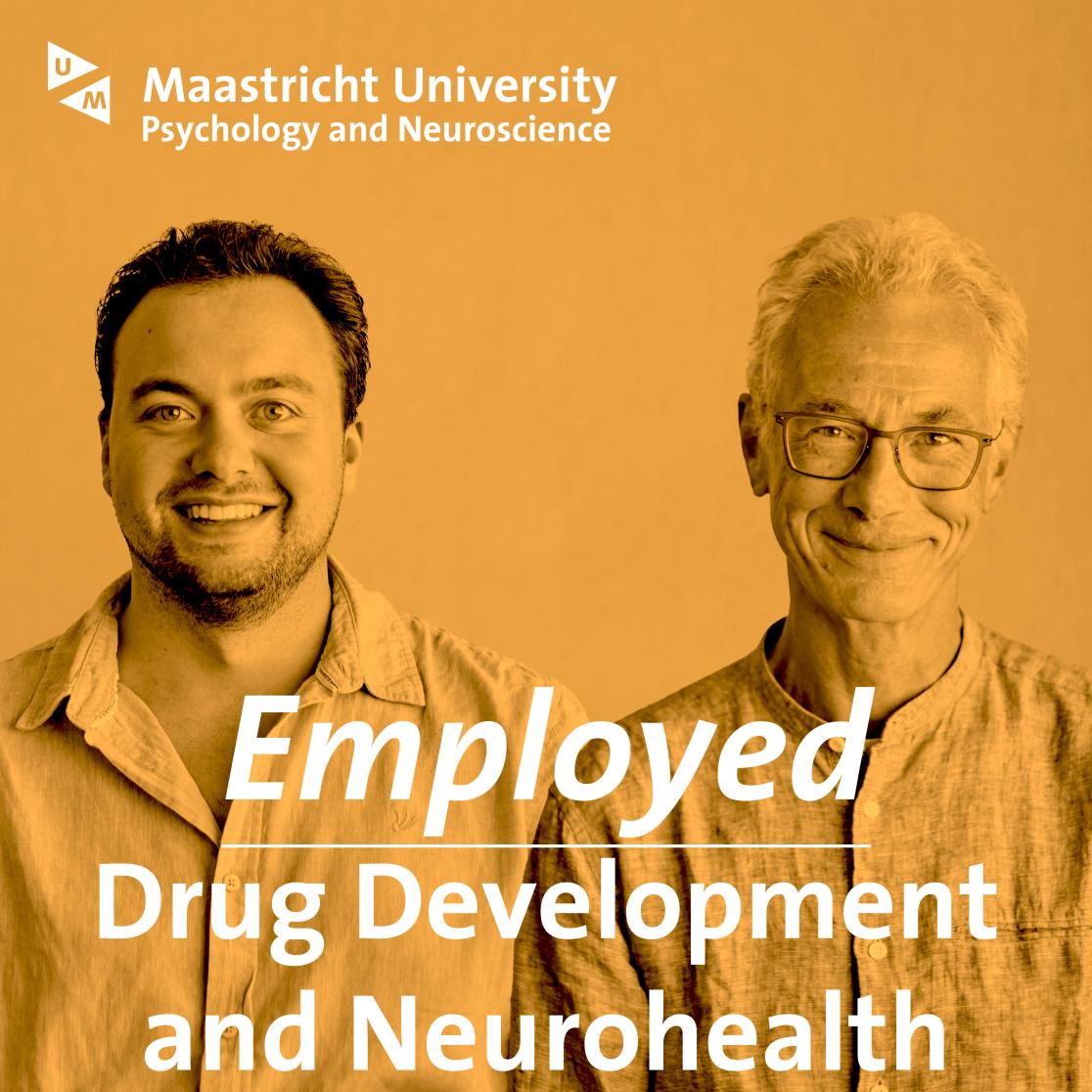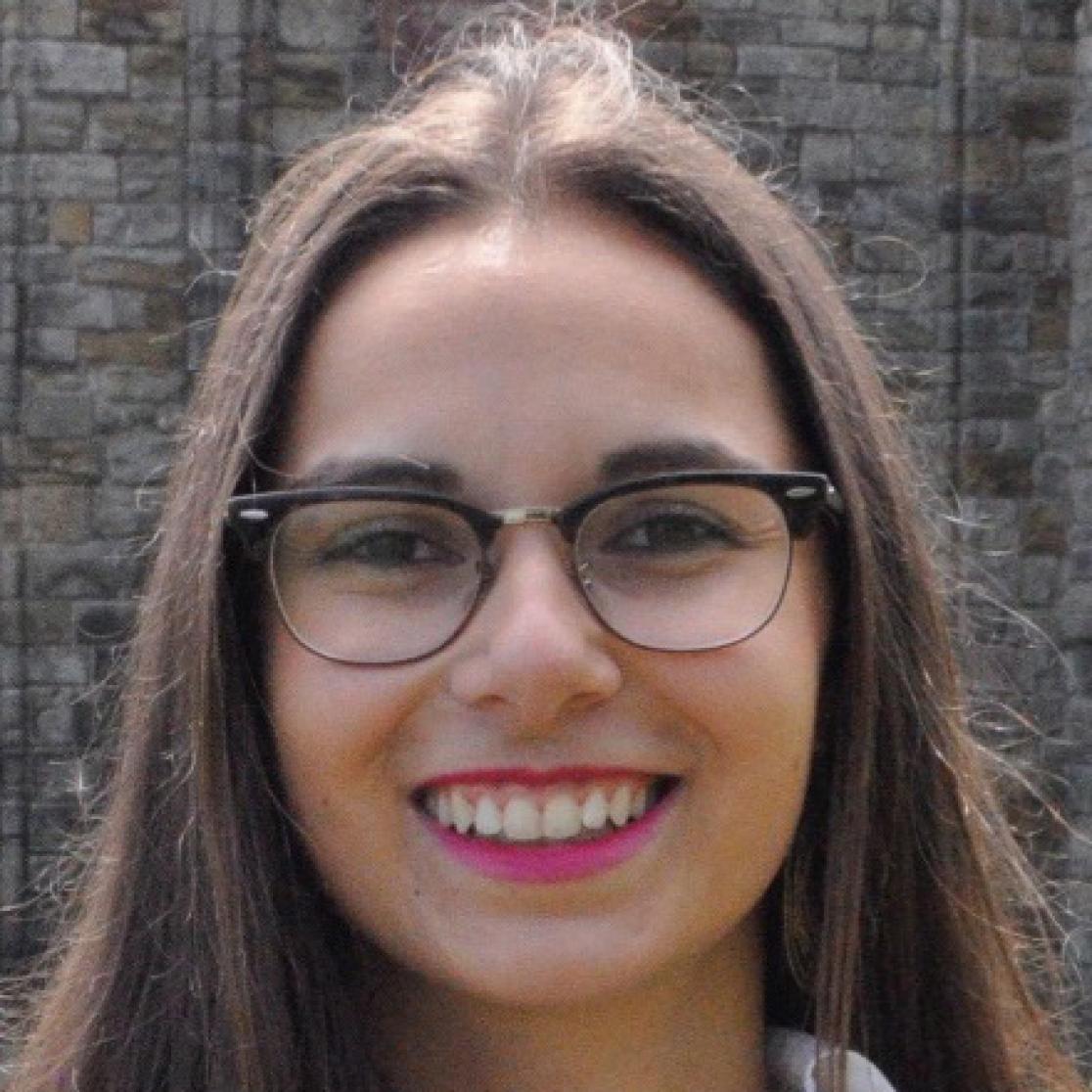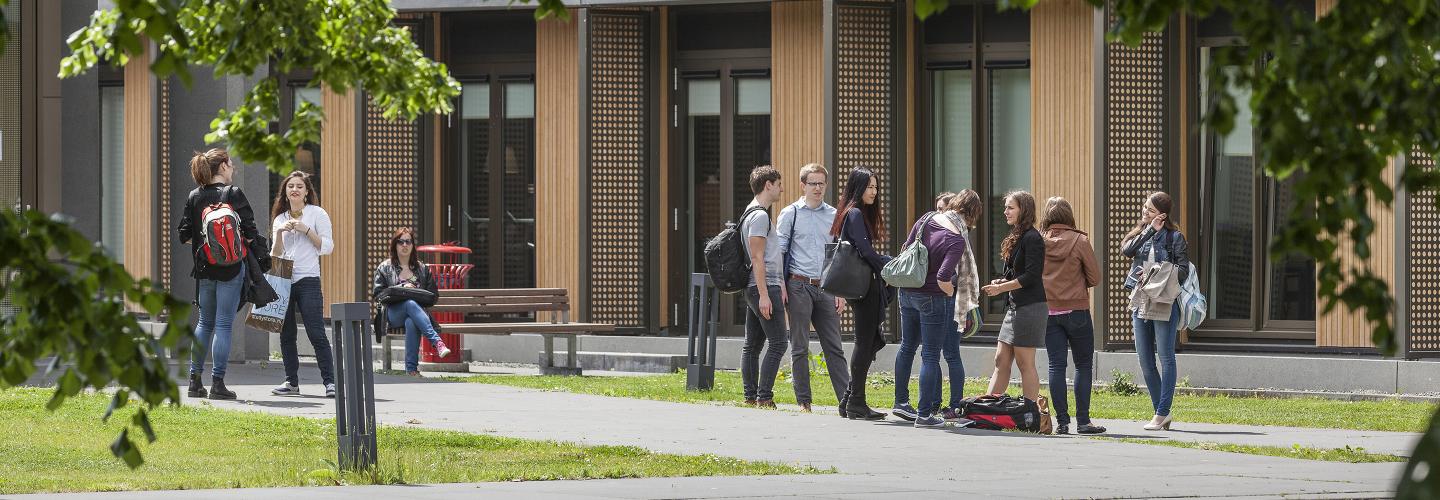Your future
The research master Cognitive and Clinical Neuroscience is primarily designed to prepare students for a scientific career, in which pursuing a PhD is usually the next step. On average, more than 90% of our graduates find their desired job or training position within 3-6 months after graduation. The majority embark on PhD projects at top universities. Others pursue clinical training or are employed in industry.
The Drug Development and Neurohealth specialisation equips researchers with the skills needed for pharmaceutical drug discovery & development and personalised healthcare in neuroscience in academic, industrial, as well as governmental settings.
Welcome to Employed, a new podcast series produced by the Faculty of Psychology and Neuroscience at Maastricht University. In these episodes, alumni from our master’s programmes will return to campus to talk about their career after finishing their studies.
Today, Romain Hollands returns to Maastricht to talk to the coordinator of his research master specialisation Drug Development and Neurohealth. They talk about his career path, his successes and struggles, and how what he has learned during his time at our faculty has helped him become a valuable asset on the job market.
Listen now to the conversation between Romain Hollands and Rudy Schreiber.

Lieve van Veggel | the Netherlands
- Graduated: 2020
- First job: PhD student in biomedical sciences at UM and UHasselt
- Current job: PhD student in biomedical sciences at UM and UHasselt
Returning to my hometown, Maastricht, after having obtained my Bachelor degree abroad was very special to me. It was not necessarily planned to move back, until I came across the Research Master Cognitive and Clinical Neuroscience, with a specialisation in Drug development and Neurohealth. During the Master I learned to work independently but also enjoyed working together through the PBL system. I also learned a great deal about myself and which direction I wanted my career to go in after my studies. After 2 years I successfully graduated at UM, I left with a bunch of friends and it set me up for my current PhD position, I could not have wished for anything more!

More testimonials
Dila Çalış | Turkey
- Graduated: 2017
- First job after DN: Research Assistant, Douglas Mental Health University Institute
- Currently: PhD student in pharmacology at university of Tübingen, Germany
Maybe one of the most challenging two years of my career… But, who told you that it was going to be easy? No doubt, I find the construction of the programme very helpful and indeed necessary for those who wants to pursue in any research-related fields. I am absolutely very grateful that I had an opportunity to grow up in my scientific career with our program where we were surrounded by excellent lecturers with their mentorship and fellows. It is no joke that the program is very demanding but hey, “be messy, complicated, afraid and show up anyway!” as Glennon Doyle Melton says… this will carry you to the next step in your career with success!
Nina Possemis | Luxembourg
- Graduated: 2019
- First job and current job: PhD student at the School for Mental Health and Neuroscience, Faculty of Health, Medicine and Life Sciences, Maastricht University, department of Psychiatry and Neuropsychology
Looking back, I immensely enjoyed the research master. I was uncertain about what I wanted to do in my future and where to head next. By the time I completed this master, I had figured it out. I had first done a clinical master and admittedly, I missed some biological aspects of neuroscience. I had never worked in a laboratory before, and this master's included introductory crash courses in the laboratory, which ultimately helped me find an exciting internship where I gained in vitro experience. Something I had always desired to do but was unable to because of the pure clinical background. In the end, the master's allowed me to combine both clinical and biological interests and thus created the blueprint for my academic career.
Romain Hollands | the Netherlands
- Graduated: 2018
- First job: Teacher and project coordinator at Maastricht University
- Currently: Scientific consultant and account manager at Noldus IT
My research master has been the ideal preparation to find out about career possibilities within academia, the (pharmaceutical) industry, and business. During my internship time at Hoffmann- La Roche I discovered that although research is of my highest ambition, I didn’t feel a match with doing the research myself fully. Being in an enormous company like Roche and a research focused faculty with excellent staff such as FPN, I noticed that managing, binding, and developing research was the drive behind my interest in research. With this master I learned about the biology, the (managing) principles of pharma and neuro research, and the huge field of science outside of academia. The complete package of the master and the diversity across my fellow students’ background made this into the perfect master for me.
Master Career Track
Join the Master Career Track
Your future after university isn’t set in stone. While your studies equip you with valuable knowledge and skills, your career path will also be shaped by your interests, talents, ambitions and ideals. Knowing how to align these with the opportunities out there is key – but where do you start?
The Master Career Track (MCT) is a programme for master’s students designed to inspire and empower you to confidently kickstart your career after graduation. By the end of the programme, you will have the insights, skills, and tools you need to pursue a career that truly fits you.
The Master Career Track includes three interactive lectures:
- Get to know yourself – Identify your strengths, values, and passions
- Explore the labour market – Discover job opportunities and people in your field of interest
- Enter the labour market – Learn how to successfully apply for a job
The Master Career Track is delivered by experienced career coaches from UM Career Services. If needed, they are available to offer you personalised guidance and support up until six months after graduation.
Do you want more info about the Master Career Track? Check out the Master Career Track page.
